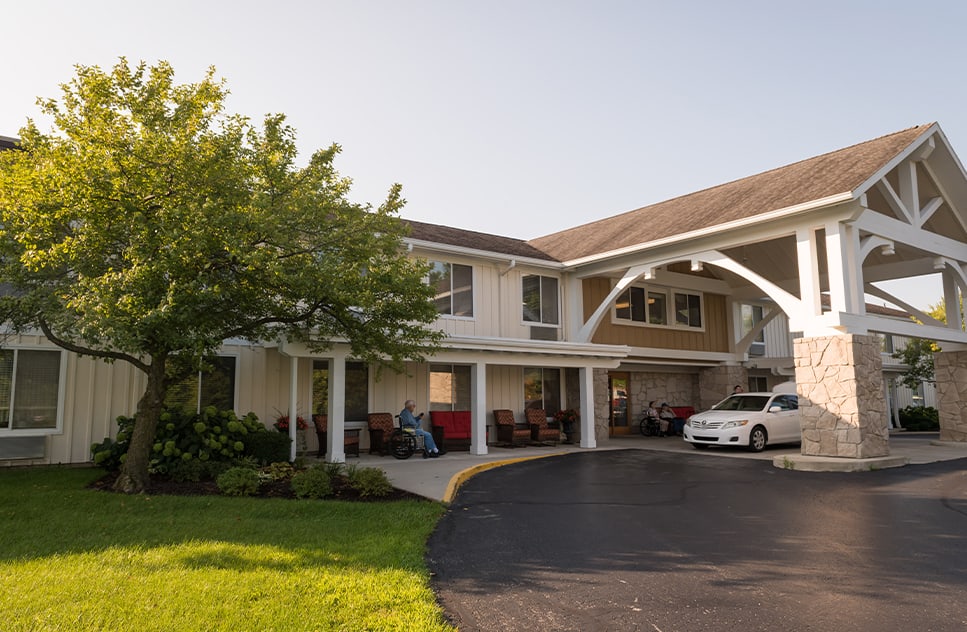Caring for a loved one is rewarding, but can be filled with many responsibilities. Over time, some individuals may feel overwhelmed by the energy associated with caring for a loved one, resulting in caregiver burnout.
Caregiver burnout is serious and should be taken as such. Burnout can lead to deteriorating health and wellness for caregivers and negatively impact the quality of care they can provide.
There’s no set time it takes to recover from caregiver burnout. Everyone’s bodies and needs are different, meaning stress is not always experienced the same way. Recovery depends on factors including:
- The level of burnout
- Support systems available
- Steps taken to address burnout
It may take anywhere from a few weeks to months, or even years to recover from caregiver burnout.
What Is Caregiver Burnout?
Caregiver burnout is a state of physical, emotional, and mental exhaustion that caregivers may experience. It happens when chronic stress related to caring for a loved one becomes overwhelming, leading to a decline in overall well-being.
Burnout can happen for several reasons. It may be because caregivers put others’ needs above their own, leading them to skip meals, lose sleep, or forgo social activities to tend to their loved one’s needs. Over time, these sacrifices take a toll.
Many caregivers also juggle other responsibilities like work and family, making it even harder to find balance.
Is Caregiver Burnout Serious?
Caregiver burnout is not just a feeling of being tired, it’s a serious condition that can affect your overall health. Chronic stress can lead to ailments such as depression, anxiety, and heart disease.
When you’re burnt out, you’re not the only one affected. Your loved one may suffer too. Burnt-out caregivers are more likely to make mistakes in administering medications, miss important appointments, or provide subpar care. In severe cases, the quality of life for both the caregiver and the care recipient may decline.
It’s crucial to address caregiver burnout as soon as you notice the signs. Doing so will improve not only your well-being but also the quality of care you can provide. Ignoring burnout can lead to a vicious cycle of deteriorating health and caregiving capabilities.
Signs that suggest caregiver burnout include:
- Chronic fatigue
- Changes in appetite and weight
- Sleep disturbances
- Anxiety
- Depression
- Withdrawing from social activities
How Long Does Caregiver Burnout Last?
The duration of caregiver burnout varies from person to person. Some may experience burnout that lasts a few weeks while for others, it can persist for months or even years.
The key factors influencing recovery time include the severity of burnout, support systems available, and the steps taken to address burnout.
Recovery from burnout often involves several phases. Initially, you might need to take a break from caregiving duties entirely to rest and recuperate. Following this, you’ll need to make long-term changes to your routine to prevent future burnout. This could mean setting boundaries, seeking professional help, or joining a support group.
It’s important to understand that experiencing burnout is not a sign of failure. Caregiving is challenging, and it’s natural to feel overwhelmed at times. Recognizing burnout and taking steps to address it is a sign of strength.

Can You Prevent Caregiver Burnout?
Prioritizing your health and well-being and having a strong support network go a long way toward preventing caregiver burnout. This shift in priority will improve both your quality of life and the level of care you can provide to your loved one.
Self-care practices can be simple, like routine physical activity, eating a balanced diet and remembering to eat, getting enough sleep, and making time for the hobbies and people you love.
Setting boundaries is necessary. Learn to say no when additional tasks are too much to handle. Delegate responsibilities to other family members or hire professional help for certain tasks. This will free up time and mental space for you to recharge.
Don’t hesitate to seek support from family, friends, or professional counselors. Joining a caregiver support group can provide emotional relief and practical advice. Sometimes, just talking about your challenges can make a big difference.
How Community Living Helps Caregiver Burnout
Senior living communities offer a range of services designed to support both caregivers and their loved ones. These communities provide a supportive environment where your loved one can receive professional care, allowing caregivers to recharge.
Respite Care
Respite care provides short-term, temporary relief for families and caregivers who may require a recharge from caring for their loved ones. This professional and welcoming environment also provides loved ones the opportunity to relax and enjoy the services that respite care offers.
Short-term care helps in alleviating the immediate pressures of caregiving. It allows caregivers to rest, recharge, and return to their duties with renewed energy. It also gives families peace of mind knowing their loved one is in good hands.
Respite care can be utilized for a few days or up to a month. The duration of the experience is best discussed as a family as everyone’s needs are different.
Respite care offers the same level of service and care provided in long-term care. This includes medication management, housekeeping, meal services, nutrition and wellness support, and social activities.
Schedule a Tour
Caregiver burnout is a serious issue affecting both caregivers and their loved ones. By understanding the signs of burnout, there are ways it can be prevented, including balancing self-care, setting boundaries, and support from professional help like respite care.
Connect with our team at Kingston Residence of Fort Wayne to schedule a tour of our respite care community.






